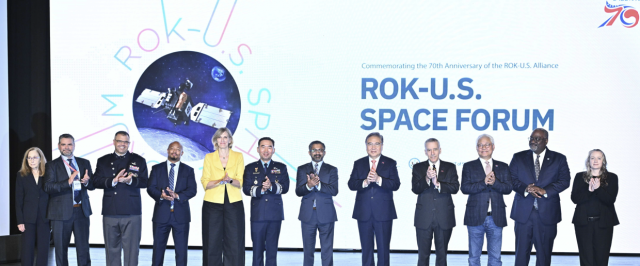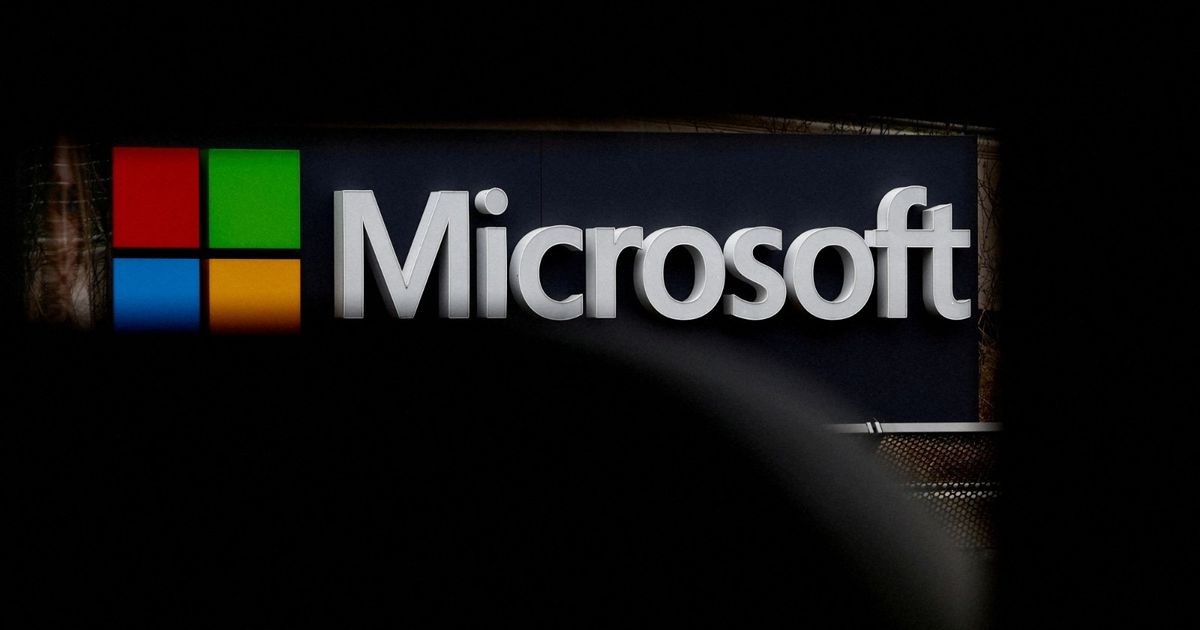[한미 우주포럼 ‘우주와 여성’ 특별세션]
Only 8% of anti-accidental researchers are female.
“We need to help young women gain experience.”
Minister of Foreign Affairs Park Jin (fifth from the right) discussed ROK-US space cooperation with Shirag Parikh (sixth), Secretary General of the US National Space Commission, at the ‘ROK-US Space Forum’ co-hosted by the Ministry of Foreign Affairs and the US State Department in commemoration of the 70th anniversary of the ROK-US alliance. I am committed to Photo provided by = Ministry of Foreign Affairs
“United Nations statistics show that only 20% of women are employed in the global space industry, which is the same level as 30 years ago. We need to promote women’s participation in STEM (science, technology, engineering, and mathematics) fields, including space.”
A special session on ‘Space and Women’ was held at the ‘ROK-US Space Forum’ hosted by the Korean Ministry of Foreign Affairs and the US State Department to commemorate the 70th anniversary of the ROK-US alliance at the Hyatt Hotel in Seoul on the 6th and 7th. Balda Bigmanis Keller, Director of the Space Division of the U.S. State Department, who attended the event, emphasized the role of women, saying, “One of the areas the U.S. State Department focuses on is encouraging women’s participation in the space field.”
In fact, women only make up 11% of the world’s astronauts and 13% of all aerospace engineers. In Korea, the ratio of female researchers at the Korea Aerospace Research Institute is about 8%, and the situation is similar at the Korea Astronomy and Space Science Institute.
Marsha Ivins, a former NASA astronaut, said, “I really wanted to become an astronaut when the first American astronaut went into space in 1961, when I was 10 years old. “After seeing what was happening, I entered engineering school first,” he said. He continued, “I was one of only two female students out of hundreds of engineering students and the first to become a fighter pilot. When I was selected 10 years after entering NASA in 1974 and knocking on the door of becoming an astronaut, only 3 out of 17 women were women. “There were only people,” he recalled. He, who flew in space for more than 1,300 hours, confessed that there were times when he did not think he would survive during his spaceflight, but he never stopped taking on challenges. He has participated in numerous space projects and is currently working as a consultant for space companies such as Exiom Space.
Hwang Jeong-ah, a senior researcher at the Astronomy Research Institute, said, “There are not many female engineers even in Korea. “Only about 15% of research positions are women,” he said. “It is not easy to find suitable role models in one’s organization.” He is an engineer who participated in the world’s first formation flight satellite (Snipe Project), which was launched during the third launch of Nuri this year, and is currently managing four science and technology satellites (Snipe).
He emphasized, “In the case of Korea’s space ecosystem, we need to help young women build their careers.” He emphasized, “The higher I go, the more I envy the United States, where the proportion of women is higher than in Korea. Women should not be afraid when trying something new, and even if they fail, they can learn a lesson from the challenge.” At the same time, she said that she studied physics at a time when there were no girls’ restrooms, but she longed for space, and as a result, the satellite she personally participated in developing now orbits the Earth once every three hours.
Researcher Hwang said, “There are still no female founders among Korean space startups, such as rockets and satellites,” and “With the ratio of female researchers in the Astronomy Research Institute and the Aerospace Research Institute being in the single digits, it is difficult to find bold female employees who are not afraid of failure.” pinched
Meanwhile, Minister of Foreign Affairs Park Jin emphasized, “In a situation where space security threats are growing, the ROK-US alliance is expanding into space,” and added, “We must cooperate to discuss international norms for responsible space behavior, including civil space activities.” Siragh Parikh, Secretary General of the U.S. National Space Committee, said, “The space sector has a significant impact on the daily lives of citizens,” and added, “Let’s strengthen cooperation in responding to climate change and utilizing satellite data.” Participating in this Korea-US Space Forum were the State Department, White House National Space Committee, NASA, Indo-Pacific Space Force, Department of Commerce, Department of Transportation, National Oceanic and Atmospheric Administration, and Federal Aviation Administration.

